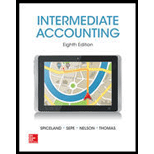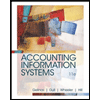
Judgment Case 10–8
Research and development
• LO10–8
Prior to 1974, accepted practice was for companies to either expense or capitalize R&D costs. In 1974, the FASB issued a Standard that requires all research and development costs to be charged to expense when incurred. This was a controversial standard, opposed by many companies who preferred delaying the recognition of these expenses until later years when presumably the expenditures bear fruit. Several research studies have been conducted to determine if the Standard had any impact on the behavior of companies. One interesting finding was that, prior to 1974, companies that expensed R&D costs were significantly larger than those companies that capitalized R&D costs.
Required:
1. Explain the FASB’s logic in deciding to require all companies to expense R&D costs in the period incurred.
2. Identify possible reasons to explain why, prior to 1974, companies that expensed R&D costs were significantly larger than those companies that capitalized R&D costs.
Want to see the full answer?
Check out a sample textbook solution
Chapter 10 Solutions
Intermediate Accounting w/ Annual Report; Connect Access Card
- I am looking for the correct answer to this general accounting problem using valid accounting standards.arrow_forwardCan you solve this general accounting problem with appropriate steps and explanations?arrow_forward(1) prepare the december 31 entry for bramble corporation to record amortization of intangibles. the trademark has an estimated useful life of 4 years with a residual value of $3,520 [it is not $3,460]arrow_forward
 Accounting Information SystemsFinanceISBN:9781337552127Author:Ulric J. Gelinas, Richard B. Dull, Patrick Wheeler, Mary Callahan HillPublisher:Cengage Learning
Accounting Information SystemsFinanceISBN:9781337552127Author:Ulric J. Gelinas, Richard B. Dull, Patrick Wheeler, Mary Callahan HillPublisher:Cengage Learning AccountingAccountingISBN:9781337272094Author:WARREN, Carl S., Reeve, James M., Duchac, Jonathan E.Publisher:Cengage Learning,
AccountingAccountingISBN:9781337272094Author:WARREN, Carl S., Reeve, James M., Duchac, Jonathan E.Publisher:Cengage Learning,




